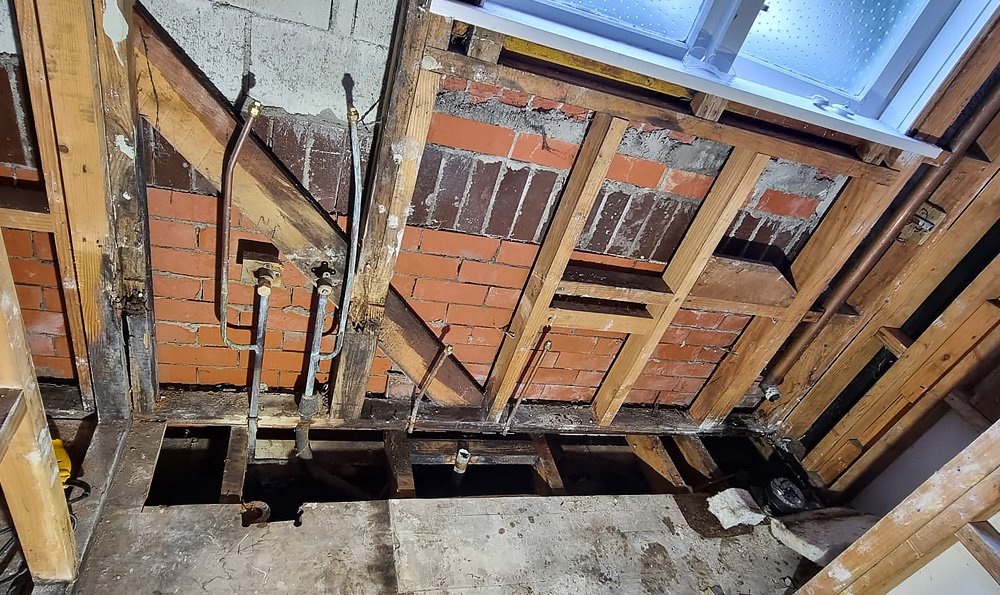
Many Kiwis are familiar with the adage, “You get what you pay for.” Unfortunately, when it comes to renovations, nothing could be truer. While a lowball quote may appear appealing at first glance, it could indicate that corners are being cut, and in my experience, those cuts end up costing homeowners dearly.
The Appeal of Cheap Renovation Quotes
When planning a renovation, many homeowners may get multiple quotations and instinctively choose the lowest cost. It’s understandable—budget is typically a major consideration, and it’s tempting to save as much as possible. However, when something seems too good to be true, it usually is.
Many homeowners don’t realise that a cheap quote often comes with hidden dangers. Builders who offer rock-bottom prices may be cutting corners in critical areas of construction, such as utilising subpar materials, hiring unqualified labour, or rushing the project. The result? Renovations that do not stand the test of time, need costly repairs, or, even worse, pose safety issues.
Over the years, I’ve seen countless examples of mediocre renovations, most completed by builders who were more concerned with delivering a low-cost product than with providing quality workmanship.
Why Detailed Quotes Are a Must
A detailed quote is more than just a piece of paper; it’s a comprehensive plan for your renovation. It should include a description of the work covered so you know exactly what you are getting, as well as a description of the work not covered so you’re clear on what’s excluded.
In addition, it should break down the costs for materials, labour, rubbish removal, sub trades, and vehicle charges. This ensures both parties are confident about the proposed work and its cost.
The problem with cheaper builders is that they often leave out important details in their quotes. Their initial costs may seem appealing, but hidden expenses frequently emerge during the project. Suddenly, you’re being charged extra for items that should have been included from the start. A builder who provides a detailed breakdown of pricing is being upfront about what you’re paying for, helping you avoid any unpleasant surprises halfway through the job.
A clear, detailed quote prevents misunderstandings, reduces the chance of disputes, and lays the groundwork for trust. All quotes and estimates over NZD$30,000.00, including GST, must have a construction contract by New Zealand law.
The Risks of Hiring an Unqualified Builder
Renovations should not be left in the hands of an unqualified or unregistered builder. There is a significant difference between someone with the necessary skills and experience and someone who’s just picked up tools and declared themselves a builder.
When hiring a qualified builder or Licensed Building Practitioner (LBP), the public can have confidence that LBPs working on their homes and buildings are competent and that homes and buildings are designed and built right the first time. Hiring a licensed and qualified builder guarantees that they adhere to proper building standards and regulations, understand how to handle materials, and can fix unanticipated complications.
Shoddy workmanship can lead to structural issues, safety risks, and noncompliance with building codes, threatening your home, family, and finances.
Water-Prone Areas Are No Place for Cutting Corners
One of the most common problems I find with low-cost renovations is in wet spaces such as bathrooms, laundry rooms, and kitchens. The value of appropriate waterproofing in these areas cannot be overstated. Water damage is one of the most expensive problems to repair in a home, and improper waterproofing or sealing can cause substantial damage to floors, walls, and even the structure of the house.
Yet time and again, I have encountered poor workmanship applied with a “she’ll be right” attitude by someone who lacked the correct knowledge, skills, and know-how. While it may seem fine initially, within a year or two, you’re likely to face swollen floorboards, mould, and costly repairs.
Why Doing It Right Pays Off for Insurance and Resale
Cheap work impacts your home’s insurance and resale value, as well as its functionality. Insurance companies are very particular about the quality of workmanship in homes. If renovations are done poorly or do not follow building codes, your claims may be declined. This could leave you responsible for the cost of repairs that should have been covered.
Furthermore, when it comes time to sell your house, prospective buyers will be looking for value. They will consider how well renovations were completed, and poor workmanship can significantly diminish the value of your property. Buyers do not want to inherit problems, and if they believe that shortcuts have been taken, they will either walk away or offer much less.
The Hidden Costs of Fixing Poor Renovation Work
One of the biggest frustrations I encounter as a builder is being called in to fix someone else’s mess. Homeowners who thought they were getting a great deal on their renovation often end up spending far more rectifying bad workmanship than they would have if they’d hired a qualified builder.